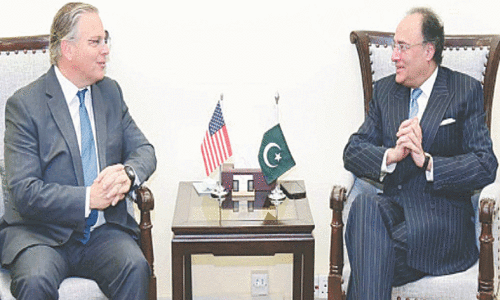MULTAN, Oct 26: Numbed by spiraling fuel prices, those belonging to low-income urban groups can find relief in a battery-run bike recently introduced in the market which can also help slash national oil import bill besides being environment-friendly.
With Rs100 a day cost for running it at a maximum speed of 50kmph, the bike was conceived by Chinese engineers for the people of Yiwu, a town near Shanghai where no gas or petrol stations operate, ending the community's reliance on fuels.
According to CCo Electric Bike Company country manager Qalandar Ali Gardezi, the 150cc and above battery-powered bikes are serving the consumers well in many countries.
Yousuf Ibrahim, an architect engineer and an entrepreneur, adapted the idea of a chargeable battery-run bike, specifically for South Asian countries like India or Pakistan where consumers had a crush on 70cc models, setting up an assembling plant in Multan in November 2007.
"We don't call it motorcycle. It is a motor bicycle that runs faster than ordinary bicycle," Gardezi told APP.
Despite promising a low-cost, environment-friendly means of transportation for local use, the company is struggling to make inroads into the domestic market.
As the target consumers were low-income groups, the planned cost of the bike was Rs34,000 which swelled to Rs46,000 because of fluctuation in dollar-rupee parity and 139 per cent import duty combined with taxes, Gardezi said.
With only 450 bikes sold so far, Gardezi admits the price is among major reasons for the poor public response.
The bike was launched in July 2008 in Islamabad in a ceremony organised by National Energy Conservation Centre (Enercon), where Federal Environment Minister Hameedullah Jan Afridi termed it a big achievement and named it ‘people's bike’, promising incentives on its import on the pattern of CNG buses to benefit not only the people but also to help the government cut oil import bill and stop further environmental degradation.
"In line with directive of the Economic Monitoring Committee to reduce country's oil import bill and to provide a clean and cheap transport to the common man, Enercon has launched the Electric Bike," says a letter titled 'People's bike to reduce $11 billion oil import bill' sent by Enercon to the finance ministry after over a month-long trial of the bike.
Enercon suggested that the price of the bike could be reduced significantly if incentives on import of its used parts were announced, hoping it would help save millions of dollar a month in crude oil import.
"Enercon recommends its promotion in the interest of easing of transport burden on the common man, protecting the environment and relieving the oil import bill, " says a letter by Enercon MD Fareedullah Khan.
Citing a report, Qalandar Gardezi says, two-wheelers eat up 700,000 litres of petrol every day in Pakistan and it takes simple mathematics to assess its cost. "We should calculate the earning from taxes imposed on this bike and compare them with the cost on importing oil to take a decision," he said.
Gardezi said the bike having a small DC motor powered by a set of three batteries, each with 16 Watt capacity, was recommended only for transportation with in a city. The batteries could be fully charged within four to five hours, consuming just 1.6 units of electricity, he added.
Enercon, after repeated trials of the bike, observed that resembling 70cc models of various motorcycles available in the market, it makes no noise at all. The per-kilometer cost of the bike has been assessed at Rs0.12 to Rs0.16 and the operation has zero emission, it adds.
Enercon also hints at the possibility of batteries being replaced by solar batteries in alternative models of the bike.
A company official says a battery-run car launched in a neighbouring country attracted incentives from the government, hoping the electric bicycle will be patronised by Pakistan government. It will boost company's confidence to introduce some other products as well like battery-powered small tractors to benefit the agriculture, he adds. —APP











































Dear visitor, the comments section is undergoing an overhaul and will return soon.